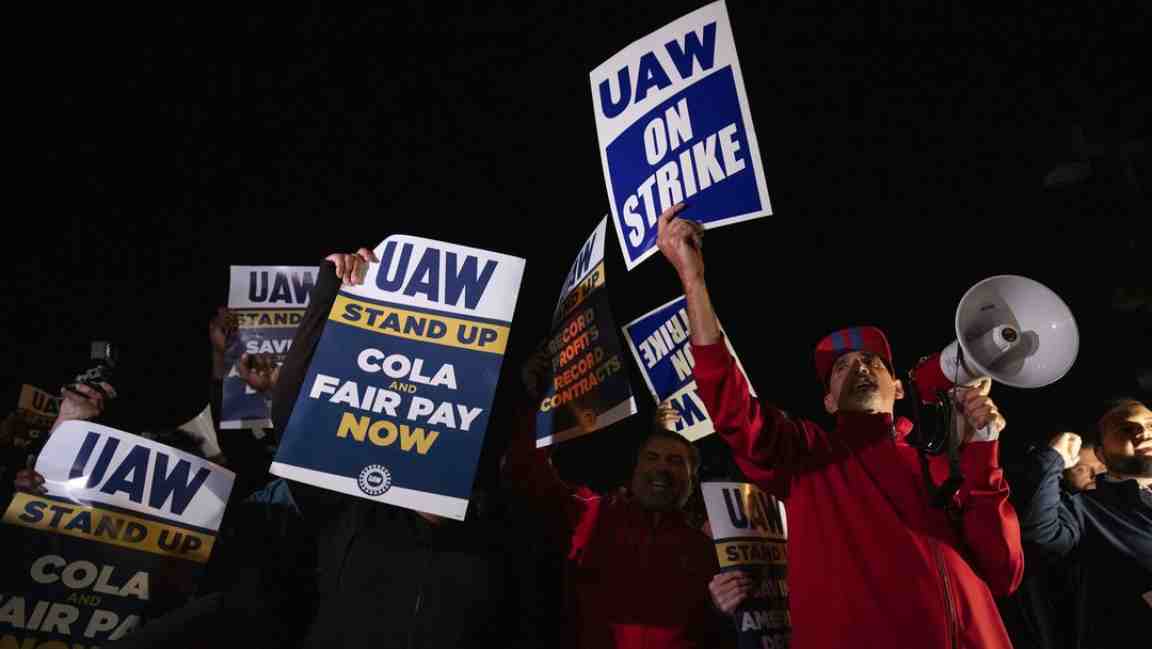UAW launches parts warehouse strike against GM and Stellantis

The UAW (United Auto Workers) has initiated a stand-up strike at 38 General Motors and Stellantis (formerly Chrysler/Jeep/Dodge/Ram) parts warehouses across 20 states, starting at noon on Friday. The strike is aimed at pressuring the automakers to come to the negotiating table with a substantial offer, according to UAW President Shawn Fain’s announcement on Facebook Live.
This strike action is designed to quickly impact owners of GM and Stellantis vehicles in need of parts and repairs. Initially, it was anticipated that the strike would also affect assembly plants producing the Detroit Three’s popular and high-profit full-size pickup trucks, including the Ford F-Series. However, Fain noted progress in contract negotiations with Ford Motor Company since the first strike, which began a week earlier at the Bronco/Ranger plant in Michigan, as well as at GM’s Chevy Colorado/GMC Canyon plant in Kansas and Stellantis’ Jeep plant in Ohio. These three plants continue to be on strike as GM and Stellantis parts warehouse workers join the strike.
Fain clarified that while negotiations with Ford have shown positive outcomes, GM and Stellantis have not made significant concessions on major UAW issues, with Stellantis notably resisting improved pay at MOPAR, Chrysler’s parts division.
Ford has agreed to various UAW demands, including the conversion of temporary employees with at least 90 days of employment to full-time status upon contract ratification and an enhanced profit-sharing formula. Additionally, Ford has accepted the UAW proposal for the right to strike over plant closures, promising income security and healthcare for two years in the event of indefinite layoffs. Ford also intends to reinstate the cost of living adjustment (COLA) formula, which was suspended by Detroit automakers in 2009.
The refusal of GM and Stellantis to reinstate the COLA formula has become a contentious point in negotiations, as Fain argues that their “deficient COLA” would provide zero percent wage protection over the life of the agreement.





